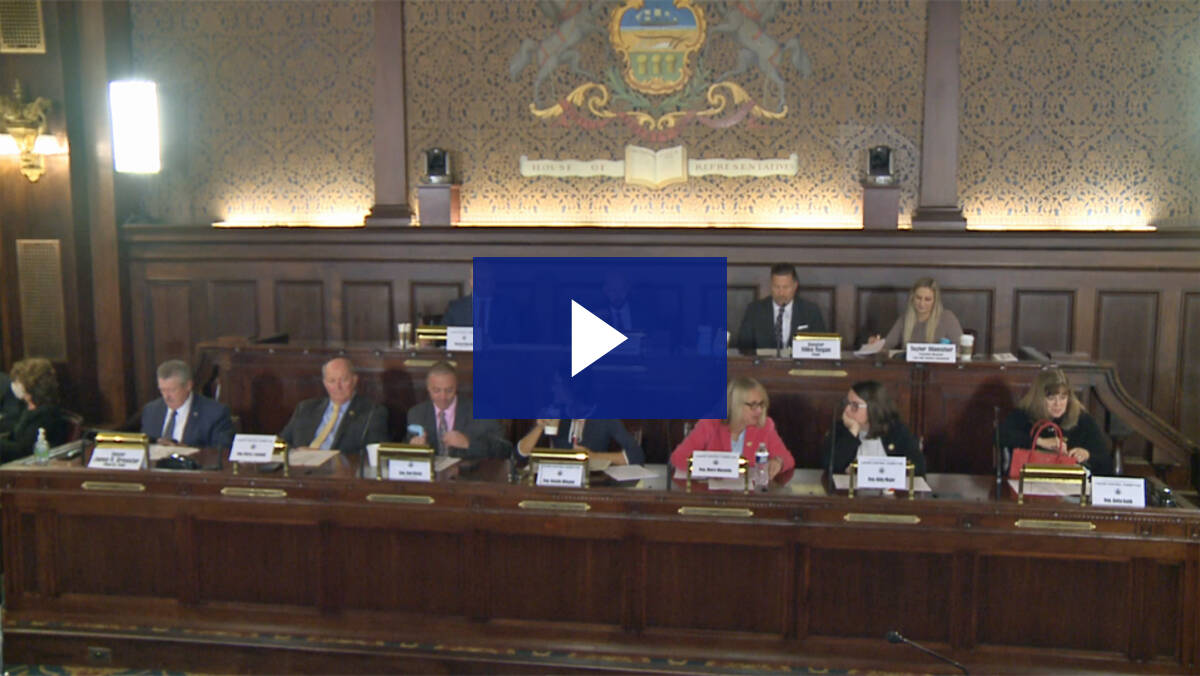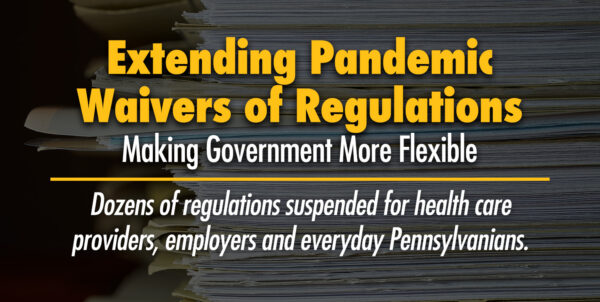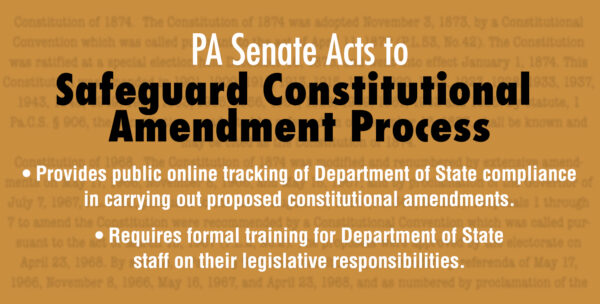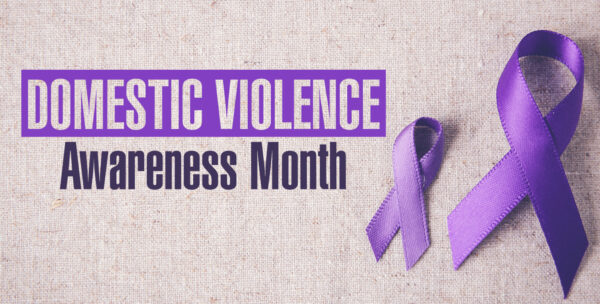
|
||
|
In this Update:
Regan Convenes Hearing on LCB Sales Limits of Certain LiquorsAs Chairman of the Senate Law and Justice Committee, I worked with the Chairman of the House Liquor Control Committee to convene a joint hearing on Wednesday in response to the Pennsylvania Liquor Control Board announcing purchase limits for nearly 50 products. While the Board’s basis for this rationing of products is a supply chain disruption, it is important to understand how they reached their decision and how they plan to impose the limits on customers, specifically, whether they are tracking individual purchases. Supply chain issues have been a factor for many industries across our country, and it is not unusual for private businesses to take steps in response to having limited merchandise. However, the LCB is not a private business, and they are a monopoly controlling all liquor sales within the Commonwealth. Further, as a government entity, the Board simply announced this change without voting on the matter in a public meeting, as they did with the closure of the state stores last year. Improving consumer convenience and access to desired products remains a top priority for me. I acknowledge that the LCB cannot necessarily control certain supply chain issues, but I will continue to hold them accountable in their operations and limitations they impose – whether through this current restriction or the lack of specific products within the state store system. Legislature Approves Extension of Pandemic Waivers of Government Regulations
The Senate voted to extend waivers of an array of regulatory statutes, rules and regulations to aid in Pennsylvania’s recovery from the COVID-19 pandemic. The bill was approved by the House of Representatives and signed into law. The waivers affecting health and human services, as well as consumers and employees, were due to expire Thursday. Enactment of the legislation would extend the waivers until March 31, 2022. In May, voters stripped Gov. Tom Wolf of the authority he claimed to extend emergency declarations without approval of the General Assembly. Delivering on a promise to the people that we work better together, the General Assembly initially extended these waivers as part of the budget in June. Approval of the following waivers is critical to providing flexibility in managing the pandemic during a workforce shortage crisis: Waivers Benefiting Consumers and Employees
Waivers Aiding the Work of Health Care Facilities and Services
Senate Acts to Prevent Repeat of Botched Constitutional Amendment Process
The Senate approved two measures aimed at preventing a repeat of the Pennsylvania Department of State’s devastating failure to carry out a proposed constitutional amendment to help victims of sexual abuse. In the 2019-20 session, the General Assembly approved a proposed constitutional amendment, which would have given voters the opportunity to decide if a two-year window for victims of childhood sexual abuse to file litigation against their abusers should be created. The Department of State admitted earlier this year that it failed to properly advertise the proposed constitutional amendment, preventing the issue from going before voters and forcing the entire effort to be restarted. One measure would require the Department of State to create a publicly accessible website to provide Pennsylvanians a transparent way to track every step of the constitutional amendment process, including:
A second bill would require formal training for the Department’s employees regarding their legislative responsibilities and the constitutional amendment process. A 68-page Inspector General report on the botched handling of the constitutional amendment showed that some Department of State staff lack the formal training needed to properly handle their responsibilities with legislation. Both bills now go to the House of Representatives for consideration. Program to Battle Opioid Abuse Extended by Senate
The Senate approved a bill that continues a program designed to help doctors and pharmacists battle opioid abuse. The program, set to expire on June 30, 2022, would be extended until Dec. 31, 2028. The bill now goes to the governor for enactment. The measure extends the successful Achieving Better Care by Monitoring All Prescriptions (ABC-MAP) program that allows access to a patient’s prescription medication history through an electronic system to those who prescribe medications and those who dispense medication. Electronic access to a patient’s prescription medication history allows doctors, pharmacists and other medical professionals to better treat patients. ABC-MAP enables opioid prescribers and dispensers to identify warning signs of abuse including “doctor shopping” and “pharmacy shopping” that occurs when patients attempt to obtain opioid prescriptions from multiple doctors or pharmacies. Senate Passes Measures to Help Pennsylvania Farmers Move Goods
The Senate passed two measures to help Pennsylvania farmers make home deliveries and meet other transportation needs. The bills were sent to the House of Representatives for consideration. One bill would enable a farmer to register a farm vehicle for the delivery of milk and other agricultural products to both businesses and homes. Under current law, a farmer is required to purchase, register and maintain a separate commercial vehicle for home deliveries while also maintaining a farm vehicle to deliver products to businesses. Another measure would allow farmers to use a Class A, B or C driver’s license when operating farm vehicles with a combined weight of more than 26,000 pounds on roadways. Act 170 of 2014 clarified that farmers did not need a Commercial Driver’s License (CDL) when operating farm trucks, or farm trucks hauling trailers, with a combined weight of more than 26,000 pounds. However, it was unclear as to whether a farmer could use a Class B, Class C or Class A driver’s license when operating those vehicles. A Class A driver’s license is a graduated license above the common Class C license and requires an additional road test and fee. Domestic Violence: Identifying the Signs and Getting Help
October is National Domestic Violence Awareness Month. Help is available if you’re experiencing abuse or concerned about a friend or family member: Call: 1-800-799-7233 (SAFE) Text: START to 88788 Chat: At National Domestic Violence Hotline You can find out how to identify abuse, plan for your safety or help others. You don’t have to take it, and you don’t have to suffer in silence. |
||
|
||

2024 © Senate of Pennsylvania | https://senatorregan.com | Privacy Policy |





